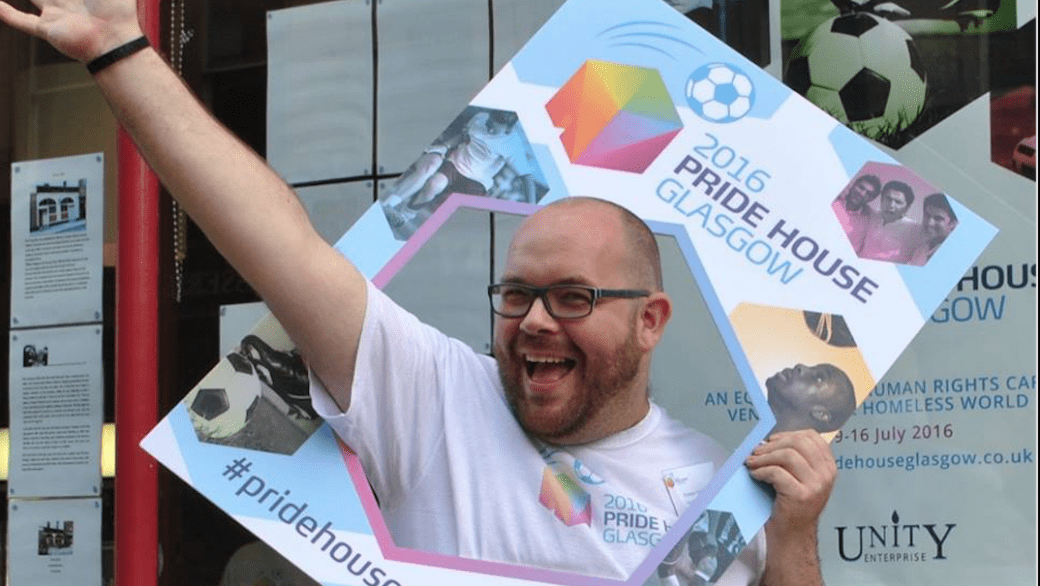For a week in early July, George Square in downtown Glasgow was filled with homeless people playing soccer. And while this year kicked off the 14th annual Homeless World Cup, this was the first at which queer players had a place set aside just for them. Fifteen minutes’ walk from the action, Spoon Café in Old Glasgow’s historic Trongate Street opened the Cup’s first Pride House, to welcome LGBT players from the more than 70 countries in the competition.
“The Homeless World Cup is a sports tournament that already celebrates diversity and focuses on the power that sport has in changing people’s lives,” explains Hugh Torrance, executive director of LEAP Sports Scotland, a host of Pride House Glasgow 2016. “With the generally disproportionate numbers of LGBTI people who exist within homeless populations, having a Pride House as a place of safety, information, support and community is of equal importance at this event as in other major and mega sporting events.”

A Pride House Glasgow volunteer poses with the talent. (Courtesy LEAP Sports Scotland)
The first Pride House opened in Vancouver and Whistler, BC, at the 2010 Winter Olympic Games. It declared its mission was “to provide an open and welcoming venue for the LGBT community and their allies to celebrate together diversity and inclusiveness through sport.”
Since 2010, Pride Houses run by local organizations and guided by Pride House International have supported LGBT fans, athletes, and allies at sporting events in England, Russia, Canada, Brazil, Poland, Ukraine, France, and — twice — in Scotland. LEAP Sports’ pride house during the 2014 Commonwealth Games was so well-received it earned the Stonewall UK Sports Award, beating out nominees Casey Stoney, Michael Sam, Thomas Hitzlsperger, and the Stonewall Football Club.

The women’s team from the Netherlands at Pride House Glasgow. (Courtesy LEAP Sports Scotland)
While Pride House was not an official part of the Homeless World Cup program, organizers invited Pride volunteers onto the tournament grounds to talk with fans and players—a privilege they did not offer anyone else. These street teams gave out information, took photographs and extended invitations to the Pride House site.
The Pride House held human rights panels, workshops, meet-and-greets, comedy and karaoke, attracting a broad audience to the café. At a reception near the end of the week, Kevin Stewart, minister for local government and housing in the Scottish government, said he would “like to see Pride Houses at every single major sporting event around the world.”
It’s a goal Torrance shares. “Personally I’d like to see games and sports organisers taking Pride Houses more seriously within the planning stages of tournaments to allow a greater synergy with events,” he says. “Pride Houses have a significant part to play in major sports events for years to come.“
The next Pride House is being held at the 2016 Summer Olympics in Rio.
Keph Senett is a coalition member of Pride House International.

 Why you can trust Xtra
Why you can trust Xtra


